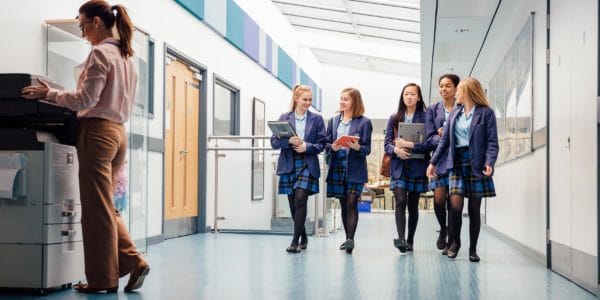Research funded by the Nuffield Foundation reveals the huge advantage rich families gain by using private tutors in the race for grammar school places.
A new paper from the UCL Institute of Education shows that private tutoring means pupils from high-income families are much more likely to get into grammar schools than equally bright pupils from low-income families.
The research, by Professor John Jerrim and Sam Sims, looked at more than 1,800 children from grammar school areas in England and Northern Ireland. It found those from families in the bottom quarter of household incomes in England have less than a 10% chance of attending a grammar school. This compares to around a 40% chance for children in the top quarter of household incomes.
Yet high-income families are also much more likely than low-income families to use private tutors to ‘coach’ their child for the grammar school entrance test. Less than 10% of children from families with below average incomes receive coaching for the grammar school entrance test. This compares to around 30% of children from households in the top quarter of family income.
Overall, around 70% of those who received tutoring got into a grammar school, compared to just 14% of those who did not. This huge impact of tutoring continues to hold even after a wide range of other factors (e.g. prior achievement, school application decisions) were taken into account.
Government must tackle private tuition inequality
Professor Jerrim’s research, which is the first study to attempt to quantify the advantage gained from coaching for the grammar school entrance test, concludes that the government must tackle this issue before it allows existing grammar schools to expand.
Professor Jerrim said: “The government claims that expanding grammars will boost social mobility. But our research shows that private tuition used by high-income families gives them a big advantage in getting in. The government therefore needs to explain how they are going to level the playing field between different income groups.”
Expanding grammar schools works against social mobility
Josh Hillman, Director of Education at the Nuffield Foundation said: “This research shows that when it comes to admissions to grammar schools, the extensive use of private tutoring heavily skews success to those from wealthier backgrounds. So expanding grammar schools would actually work against social mobility by perpetuating the current inequality in access, which leaves children from low and middle income families severely underrepresented.
“Grammar schools are a contentious subject, so there is a vital role to play for independent funders like the Nuffield Foundation in ensuring that high quality research evidence is available to inform policy decisions.”
The analysis from Jerrim and Sims was based upon the UK’s Millennium Cohort Study (MCS). A total of 1,039 children from Northern Ireland and 819 children from grammar school areas in England were tracked from nine months through to age 14. The academics were therefore able to consider how factors such as family income, prior academic achievement, private tutoring and parental attitudes and aspirations were associated with children’s chances of attending a grammar school.
Other key findings from the study include:
- Children from high-income families in England were 20 percentage points more likely to attend a grammar school than children from low-income families, even amongst those who had similar levels of academic achievement at age seven.
- Families with the same level of income are much more likely to pay for private tutoring during primary school if they live in an area with a large number of grammar schools, than if they live in areas without grammar schools.
- An even stronger association between family income and grammar school attendance was found in Northern Ireland. Children from high-income families were 33 percentage points more likely to attend a grammar school than low-income children of equal academic ability.
- Parents and teachers’ views of children’s academic potential during primary school did not explain why high-income children are more likely to attend a grammar school than their low-income peers.
“Why do so few low and middle-income children attend a grammar school? New evidence from the Millennium Cohort Study?” is the latest working paper to be published by the UCL IOE’s Department of Quantitative Social Science (QSS).







































